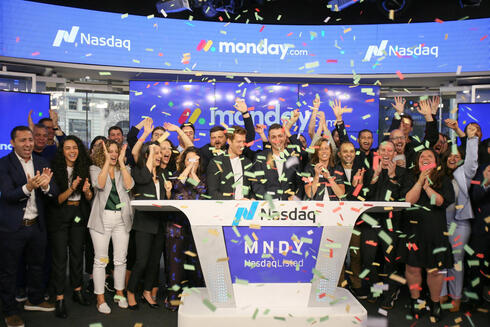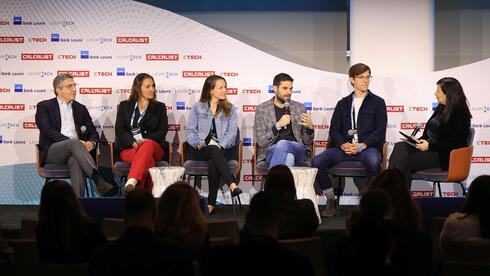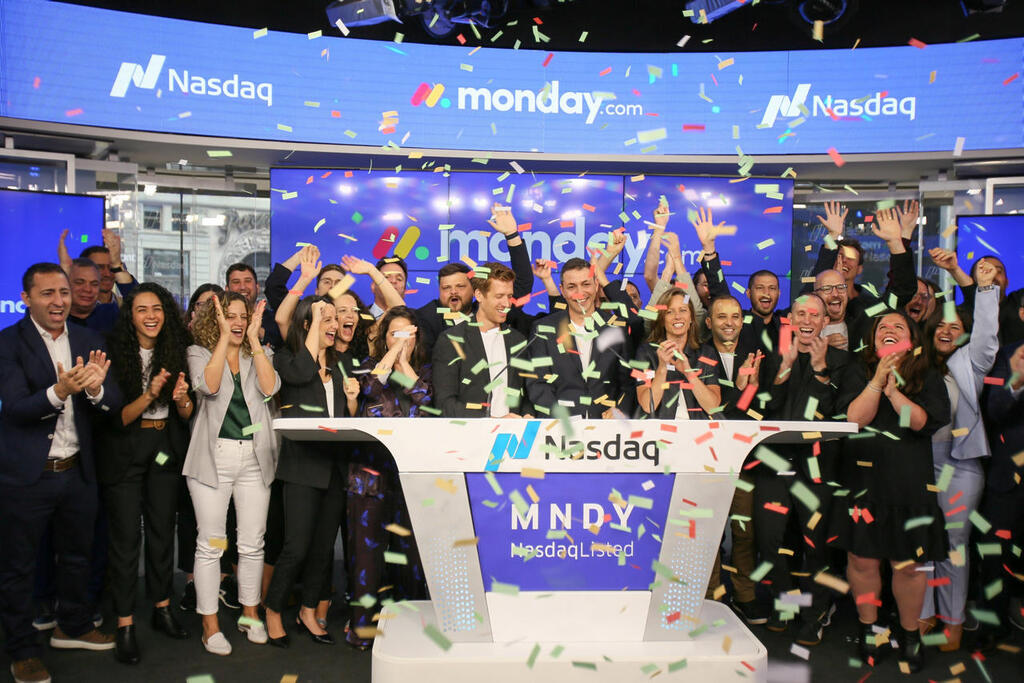
Analysis
How Monday overtook NICE and why Teva is on course to becoming Israel's highest-valued company
While Wall Street transitions from growth stocks to value stocks, the balance of power among Israeli giants is also shifting. This reflects the speed at which the market punishes companies and rewards those leading growth processes, returning to profitability, or correctly identifying emerging fields.
The shift by the world's investors moving away from heavy tech stocks in favor of smaller stocks that have remained in the shadows has also created interesting dynamics within the Israeli market. The reasons for these changes vary, but the overall trend highlights how quickly investor preferences can change.
Experienced managers of public companies understand this and are therefore less affected by market fluctuations. However, for the general public, this serves as an important reminder: stock markets are always dynamic, and yesterday's star is not necessarily tomorrow's star. Calcalist has gathered several groups of shares of Israeli technology companies whose relative sizes have changed significantly, often unnoticed by many investors. This change in power dynamics doesn't necessarily reflect a deep shift in the competitive landscape among the companies, some of which do not even compete with each other directly but operate in the same market. Instead, it reflects how quickly Wall Street investors can punish companies on one hand, and reward those that know how to lead fundamental processes to restore growth and profitability or correctly identify new fields. In this, Wall Street differs from the Tel Aviv Stock Exchange, which tends to be more stable, for better or for worse. For foreign investors evaluating investment opportunities in Israel, company size is significant because they often prefer the largest and most marketable player in the field.
A significant change occurring these days is Teva's surprising potential return to its historical position as the largest Israeli company. Although it never stopped being the largest in terms of revenue, generating $16-17 billion a year, it lost its crown in market value long ago. Since Mobileye's re-issue on Wall Street, it has held the title (if we do not consider the American company Palo Alto Networks founded by the Israeli Nir Zuk). However, Teva and Mobileye are now converging around a value close to $20 billion, with Teva making a comeback after a 58% rise since the beginning of the year, while Mobileye has fallen after once trading at more than $30 billion. These shifts occur because investors are returning to companies in more traditional fields of activity after growing weary and stressed by the sharp increases in technology stocks.
Traditional companies are expected to benefit from the predicted slowdown in inflation and the interest rate decrease expected in the U.S. in the coming months. Lower interest rates are also good news for high-tech companies, but they have already ridden the big AI wave and reached price levels that are beginning to seem disconnected from reality. For Mobileye and Teva, it's mainly a story of sharp business deterioration versus impressive recovery. Mobileye has many accolades, including its $15.7 billion sale to Intel - the largest Israeli exit. However, it has recently experienced a significant slowdown. Conversely, over the last decade, Teva seemed to have lost its way. However, investors like the relatively new CEO of the pharmaceutical company, Richard Francis, and his plan for the company. Admittedly, it is still far from its historical peak value of about $80 billion in 2015, but the latest surge also came as a surprise. The only one that may prevent Teva from returning to its former glory is Check Point, one of the oldest Israeli companies on Wall Street, which enjoys renewed investor affection due to its high profitability. After rising 12% this year, Check Point is trading at an all-time high, with a value slightly above $19 billion.
The change between Monday and NICE, two successful Israeli companies that sell software for the corporate market, also came as a surprise. When Monday went public in 2021 at a value of $6.8 billion, NICE was already priced at $20 billion. Monday's revenue is still less than half of NICE's, but investors like its fast growth rate and consistent compliance with forecasts. NICE, on the other hand, is being punished for the departure of CEO Barak Eilam after a decade at the helm, during which he launched it, leaving it to contend with AI threats that may disrupt the service center market its software manages. AI is also a disruptive factor for Monday, whose platform is designed for managing processes and projects in organizations, but as a younger company, it is seen as having higher capabilities to face the challenge.
The cases of CyberArk and SentinelOne, as well as Wix against Global-e, are more reminiscent of Teva and Mobileye, where the older company suddenly comes to life. CyberArk, a member of the Israeli cyber club, enjoyed less interest in recent years because its identity management field was overshadowed by the cloud and its old model of selling software as a product rather than SaaS (software as a service), which took over the software world. When SentinelOne made the largest IPO in cyber history at a value of $10 billion, CyberArk, founded back in the previous millennium, traded for half that amount. But the tables turned last year, and while SentinelOne is being punished for missing predictions and facing increased competition, CyberArk has risen to the occasion. It changed its business model, its field became hot because most of the big hacks were done using corporate identities, and three months ago, it even announced a huge purchase of an American company for $1.5 billion.
Similarly, Wix has recently returned to excite investors after being sharply punished for halting growth and deepening losses in 2022 following the end of the pandemic lockdown period. Just two years ago, it traded around a value of $3 billion, and many investors struggled to see its path to recovery. Global-e, whose solutions, like Wix, form an infrastructure for e-commerce, also benefited from the pandemic period and even managed to launch a second IPO at the end of 2021, half a year after the first IPO, after it jumped to a value of $10 billion. In 2022, similar to Wix, the momentum from the pandemic period began to wane for Global-E as well. Unlike Wix, it has not experienced a dramatic slowdown, but on the other hand, it also fails to show a dramatic improvement to bring back investors.
Outside of the software world, interesting developments are also taking place. In the renewable energy sector, the veteran Ormat once again overtook SolarEdge after the latter ran into a crisis due to inventory accumulation and announced a second round of layoffs last week. In the chip market, Camtek and Nova continue to widen the gap with Tower, which was a step away from being sold to Intel for $6 billion in a deal thwarted by the Chinese regulator. Since then, Tower has not been able to surpass the $5 billion mark, while its younger and smaller competitors have outpaced it.
Despite the internal upheavals, it is surprising and especially encouraging to discover that nine months into one of the most challenging periods Israel has faced, it still has more than 10 companies valued at over $5 billion, and investors are not pricing them with an Israeli discount but according to performance alone.















